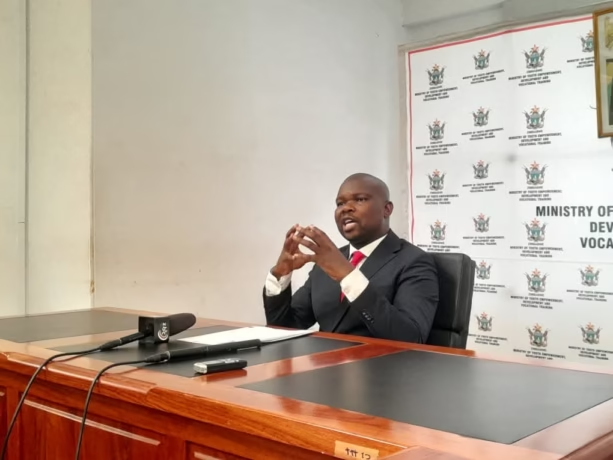
The resort city of Victoria Falls has become the epicenter of continental technological discourse as the inaugural Artificial Intelligence (AI) Summit for Africa opened this Monday, with the Government of Zimbabwe announcing that its long-awaited National AI Strategy will be launched next month.
This bold step positions Zimbabwe as a trailblazer in shaping Africa’s digital future, in line with the National Development Strategy One (NDS1), which anchors digital transformation as a critical enabler in the march towards an upper-middle-income society by 2030. More than 100 delegates, drawn from across Africa and beyond, were told that the country’s second draft of the AI Strategy has been completed and is now open for broad stakeholder consultations—a clear signal of Zimbabwe’s commitment to inclusive, forward-looking technological governance.
“We have finalised the National AI Strategy, and it will be unveiled this October. I look forward to the outcomes of these discussions. We will adopt the Summit’s recommendations to strengthen Zimbabwe’s upcoming AI strategy and contribute to a continental framework that amplifies Africa’s voice on Artificial Intelligence,” the Minister of Information Communication Technology, Postal and Courier Services, Honourable Tatenda Mavetera, declared.
The AI Summit, convened under the theme of accelerating AI integration for sustainable and inclusive growth, has brought together policymakers, industry leaders, researchers, innovators, and technology enthusiasts. Beyond presentations, the event seeks to foster collaborations that will shape how Africa leverages AI to confront its pressing challenges, from agriculture and education to healthcare and financial inclusion.
“The AI Conference for Africa aims to facilitate knowledge exchange, strategic partnerships, and policy dialogue to accelerate AI integration across multiple sectors. The event will showcase how AI can help tackle Africa’s developmental challenges while driving sustainable and inclusive growth,” explained Dr Dennis Magaya, Chairperson of the Intelligence Institute of Africa.
At the heart of these deliberations lies a critical historical lesson: nations that fail to shape their technological future risk being shaped by it. In the age of AI, complacency is costly, leading to digital dependency and a new strain of neo-colonialism where foreign algorithms dictate local realities. Zimbabwe, by pushing forward with its AI policy, is rejecting this path of vulnerability and instead charting a course that reaffirms sovereignty, economic competitiveness, and Africa’s rightful place in global technological innovation.
The Victoria Falls summit is more than an event; it is a declaration that Africa, led by countries like Zimbabwe, will not be passive observers but active architects of an AI-driven future. It is here that the continent’s digital destiny is being written, on its own terms, with its own values, and for the benefit of its own people.




